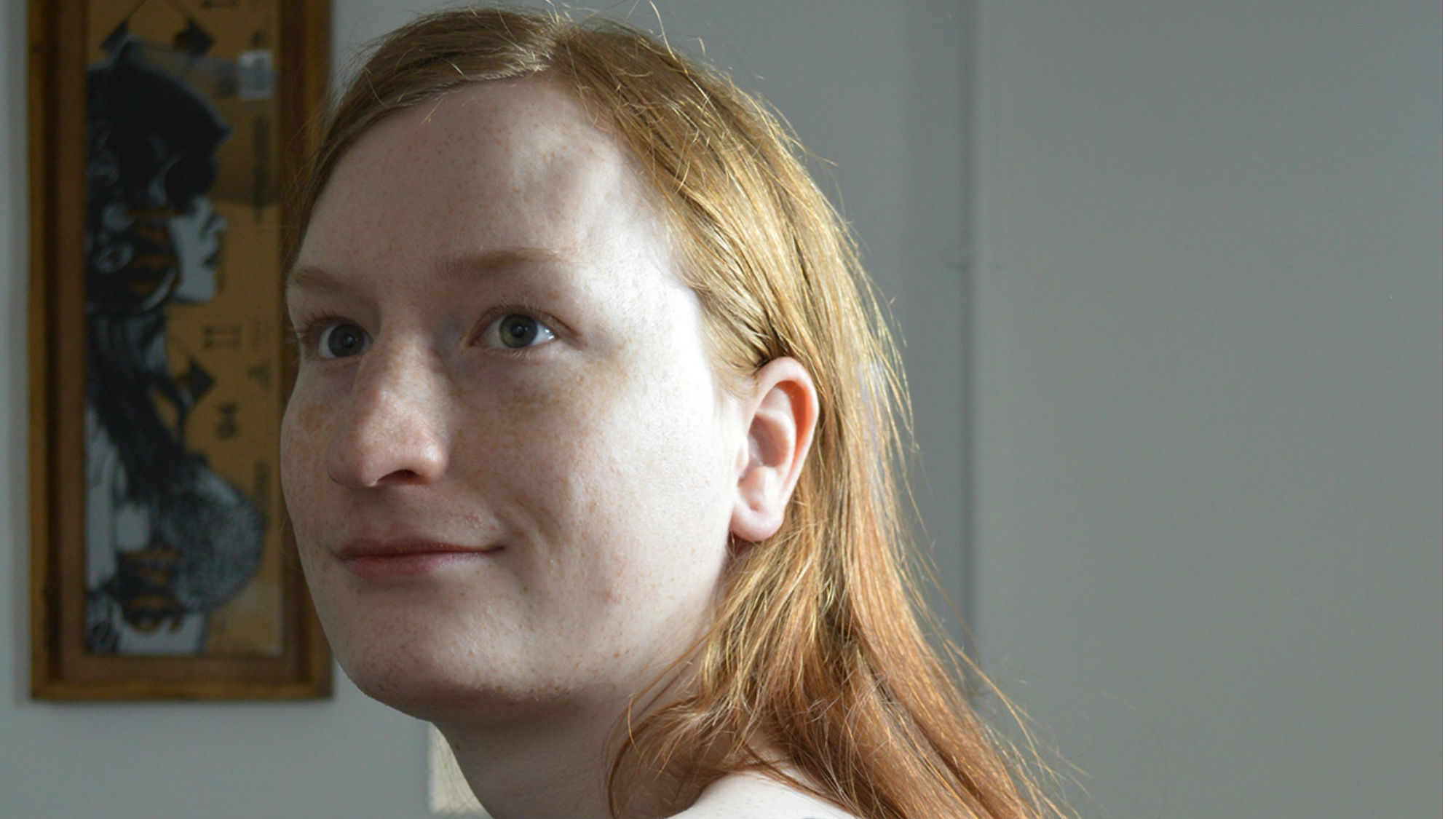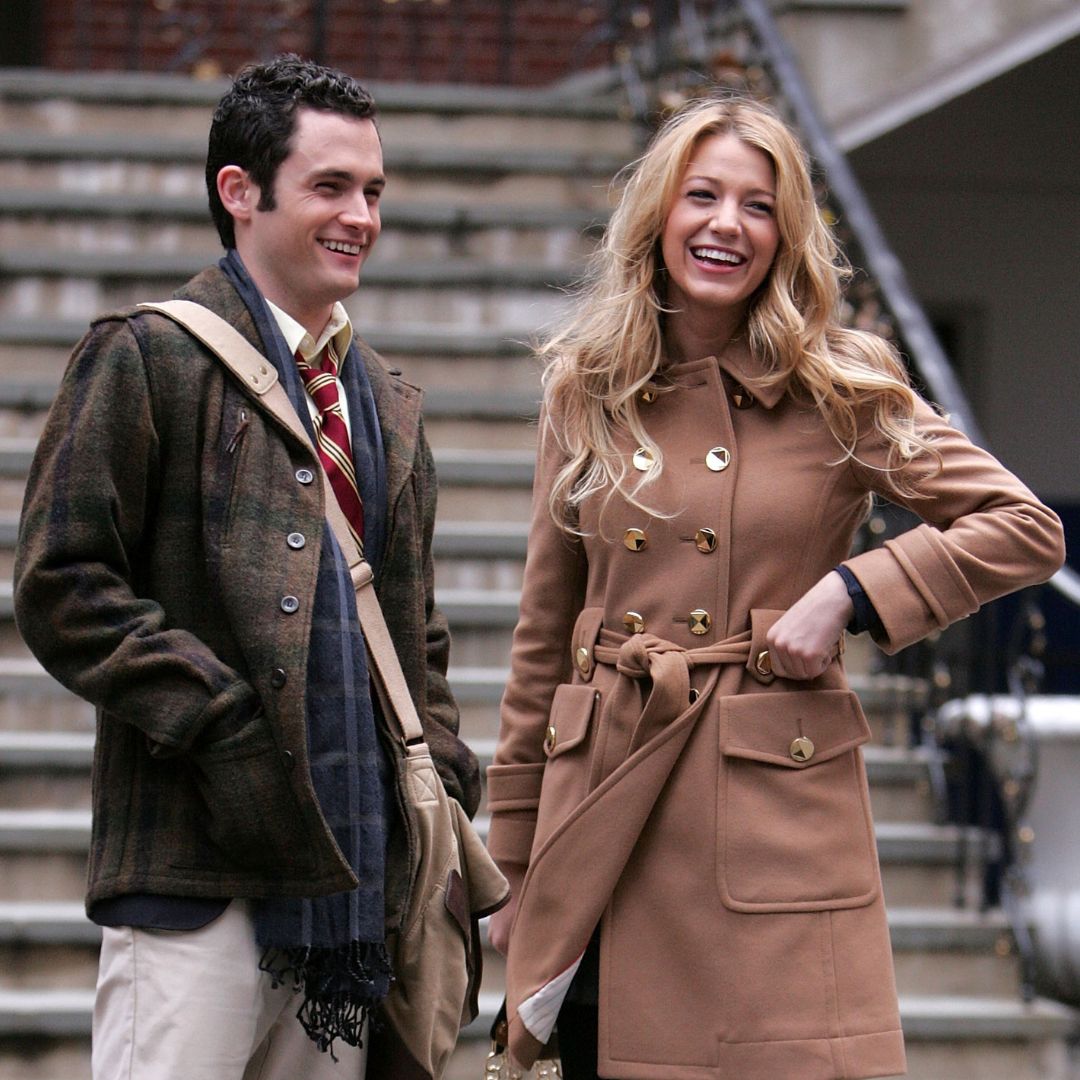'Coronavirus is increasing LGBTQ+ mental health inequalities' says trans woman Abi Giles
NHS pathology lab scientist and trans woman Abi Giles shares her story in a bid to promote understanding and equality

NHS pathology lab scientist and trans woman Abi Giles shares her story in a bid to promote understanding and equality
'Realising I was a woman was a gradual process for me, rather than feeling trapped in the wrong body from a young age. Before I transitioned in 2017 and changed my name to Abi, I spent a few years expressing myself as female behind closed doors.
When I presented myself in that way I felt more confident and comfortable. I started to think, this is who I am. I’ve been through male puberty so I’ll never have the same features as a cisgender woman – my bone structure is bigger and I naturally have more muscle mass - but I’m still a woman.
I’m a pathology lab scientist - which means I test blood in hospitals – and I'm based in Bolton. I literally wear a white coat for a living! I’ve always wanted to help people but without being on the front line like a doctor.
I came out to my managers and agreed a set date to transition. A few months before that day, I put a message out on Facebook for my colleagues to see. They were all incredibly understanding and since that day I’ve represented my NHS trust at Bolton Pride.
My appearance didn’t drastically change. I have an androgynous dress sense and found daily make-up too much of a faff. I have light facial hair and it’s painful to shave my face every day, so I’ll admit, I have been a woman walking around with a bit of a beard every now and again.
It’s important to me to be honest about my story on social media, because society has this idea of what a woman should be, and I want to show you don’t have to conform to this dated idea of femininity.
Marie Claire Newsletter
Celebrity news, beauty, fashion advice, and fascinating features, delivered straight to your inbox!
Because I’m a medical professional I’m not a hard-core tweeter of my opinions, but I am vocal about the importance of trans rights. I like to challenge people to think about what they are saying.
As we know, marginalised communities across the country are disproportionately impacted by the pandemic. Members of the LGBTQ+ community especially are at risk of suffering from mental health problems stemming from coronavirus, as access to counselling support is increasingly limited and healthcare, such as surgeries, are being delayed.
As a state registered health professional I also really want to clear up another misconception about the NHS - that teens are given hormones to change their gender identity if they ask for it. In reality, it’s so hard to access treatment, and no person is given any permanent hormone treatment until they turn the age of 16. What is given to teenagers under the age of 16 is hormone blockers, which essentially puts puberty on hold. They are safe and have been used for decades.
I’m on the waiting list for hormone treatment (the NHS target is to be prescribed hormones within 16 weeks and it’s been three years since I was referred), and so I suppress testosterone by self-medicating on three tablets a day, as prescribed by my individual GP. I recently got my gender dysphoria diagnosis - which means the NHS recognises the mismatch between my biological sex and gender identity - and I'm finally in the system and on track for both hormone treatment and gender confirmation surgery (I want to stress that not every trans woman can or will have an operation).
However, when the virus hit I didn't receive even a generic email updating me on my situation. Instead, the NHS website was updated to say that services were on hold, and that was the end of it. I felt completely heartbroken because I was finally making progress. Trans people can feel more alone than ever right now.
Since the 2016 Brexit vote there has been a lot more toxicity towards minority groups, but I appreciate life is a lot easier for trans people to live than in decades past. That said, mental health for the trans community continues to be a struggle, firstly because of the struggle of trying to figure out who you are, and then because of the struggle of accessing healthcare. And the pandemic has undoubtedly been another test. Calls to the LGBT foundation helpline have increased, with members of the community stating they are having to isolate with homophobic, biphobic or transphobic people and don't feel safe. It's shocking and saddening.
I’m currently single and turned 30 when coronavirus was peaking. My best friend left gifts and balloons outside my apartment, which was wonderful, and I had Zoom hangout with my friends and drank plenty of glasses of wine. But I admit, I have felt lonely and there have been times when I have cried and wished I was isolating with a partner. Ever since I transitioned I've become so social, so this new experience has definitely been challenging.
I’m bisexual, so for me, it’s about connecting with the person, not the gender, and if I found myself in a stable relationship I would like to have a family of my own. I’m infertile due to taking hormone treatments, so I would definitely consider adoption. Family is so much more than sharing strands of DNA. It’s about teaching good ideas and values to offspring.
June is Pride Month, and as a Trustee of Sparkle, the national transgender charity, I'm pleased to be able to say we will definitely be hosting a Virtual Pride event. The online replacement is crucial because the weekend allows people who are not normally living life as their true selves, to be unapologetically themselves - even if it is just for two days of the year.
Still, it's important to remember that Pride is a protest for equal rights. In recent years it has become a bit commercialised, in terms of money-backed businesses and celebrity appearances, but going virtual for a one-off year is an opportunity to shift the focus away from the parade and it also means every one can attend. A hardship like coronavirus brings us all together and Pride, virtual or otherwise, is an opportunity for people to feel accepted for who they really are.
Abi is a Trustee and Fundraising Co-ordinator for the national transgender charity Sparkle, which aims to celebrate the transgender community. For more information see sparkle.org.uk
Olivia – who rebranded as Liv a few years ago – is a freelance digital writer at Marie Claire UK. She recently swapped guaranteed sunshine and a tax-free salary in Dubai for London’s constant cloud and overpriced public transport. During her time in the Middle East, Olivia worked for international titles including Cosmopolitan, HELLO! and Grazia. She transitioned from celebrity weekly magazine new! in London, where she worked as the publication’s Fitness & Food editor. Unsurprisingly, she likes fitness and food, and also enjoys hoarding beauty products and recycling.
-
 Penn Badgley and Blake Lively kept their breakup a secret from the Gossip Girl cast and crew - here's what we know about their former relationship
Penn Badgley and Blake Lively kept their breakup a secret from the Gossip Girl cast and crew - here's what we know about their former relationshipBy Jenny Proudfoot
-
 Spring has finally sprung - 6 best outdoor workouts that are totally free and boost both body and mind
Spring has finally sprung - 6 best outdoor workouts that are totally free and boost both body and mindSoak in the nature and boost Vitamin D *and* endorphins.
By Anna Bartter
-
 This iconic rose perfume is a compliment magnet—it makes me feel ‘put together’ after just one spritz
This iconic rose perfume is a compliment magnet—it makes me feel ‘put together’ after just one spritzGrown-up and elegant, yet not at all dated.
By Denise Primbet